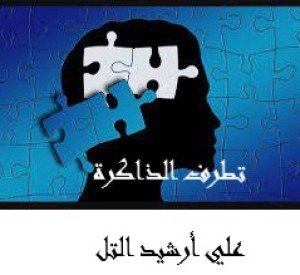Tal was born in 1945, Irbid, where he completed his secondary education. At that time there was no university in Jordan, so he was first sent to Egypt, to Al Azhar University to study medicine. He later returned to Jordan and then to Lebanon, [and finally] left to London, where he wanted to study mathematics, but news came from his family in Irbid to study Petroleum Engineering, which he acquired with an honors degree from London University.
Now an established novelist in Britain, Tal is etching a legacy of Arab culture and social tales that even Arabs could be unaware of. In 12 August 1999, the Jordanian Newspaper The Star published an interesting interview where The Star's Marwan Asmar and Rasheed Al Roussan met with Tal, excerpts follow:
An Arab living in the European Diaspora, is this a fair description of you?
No. I don't see myself as a refugee or someone detached from his homeland. I am not detached from any part of the Levant. I am with it. I follow up the social evolution of the area. Their problems, their aspirations, their do's and don'ts, their overloaded agenda of success, freedom and liberation are all close to my heart. Somebody asked me once what do I see in the window of my study in England? I see the Golan Heights, the plains of Palestine and the agonies of the Iraqi children. However, every time I visit Jordan I see commercial development, construction of hotels, villas and new roads. Yet people seem to be going further back in a reactionary way. They are basically searching for identity in a world ruled by American and European fashion. Our people seem to know who they are and where they are and where they come from in this complex invasion of "isms" that thinkers seem to be banding around without much concern for ordinary people. Politics never interests me. I am more interested in how people live their daily lives; their happiness, sadness, what actually makes them tick.
We can characterize your books, "On the Walls of My Being" and "Sheikh of Lovers", in terms of being geared to the Orient, and specifically to Jordan. Is this a good thing, and aren't you in danger of slicing the market? In other words, who is your target audience?
I write for anybody who wants to read. I want people in the region to read my works to get the sense of who they are.
But your audience is mainly the English speaking market, right?
This hasn't always been the case. I started writing in Arabic. I wrote four novels in the Arabic language. And I tried to publish one in Jordan, but I didn't have any body to push my case. I was later told that if my work was published in English, most people would have taken notice of it.
So it's not because you like to express your ideas in English, it is only because it is a better way to reach people, right?
Yes, it is just a medium. I was even shocked to find out that my English turned out to be literature!
In "Sheikh of Lovers", you adopted a very classical style of writing, which seems to be far from today's rapid pace, why?
That's the only way I can write. I have no training and I really chose no style at all. But I have been writing since my early days: Short stories and scribblings.
You are becoming an established author, what made you take up such a hectic career?
Well, the reason I chose writing was because of my health. I suffer from Chronic Asthma, so doctors told me not to make any physical effort that can worsen my health. I thought of acting at the beginning as a career, but I took up writing at the end.
What about the process of writing?
All my novels so far are based on true characters. And all my works, except the recent novel I am working on, are inspired from real events that occurred in Irbid.
I keep my ears open whenever I sit with people, listen to what they say and then build up plots and create characters in my mind. Before I write the novel, the whole story is already visualized in my mind, but sometimes I try to find several endings and then choose the best. It happened to me when I wanted to end "Sheikh of Lovers". When I write, I work on many things at the same time, like painting a picture and concentrating on another one at the same time.
You created for yourself a niche in British society, can you see yourself as a bridge, if you like, between Arab and western culture?
No I don't.
You seem to tackle religion and women in your novels, how do you see society today in relation to these issues?
When it comes to women, our society is a society of herdsmen, where men are the shepherds and women are the cattle. All that men care for is what women wear, who is the father of this woman, how on earth is she allowed to leave the house all dressed up, etc.
We are a religious society, and religion is part of our political and social life. However, over the centuries, in both Christianity and Islam, women came to represent sin to theologians. And they in truth brainwashed their flock to make them think of women as animals that they have to ride to keep them going in a straight path.
I am objective in portraying religion in my works. We have a lot of exaggerations and abstract ideas that are not really part of religion at all.
How do you see the literary movement in the Arab world, as a Jordanian, who is now looking from the outside onto his fellow country and region?
First, Arabic literature was and is imitative. In recent years, there was a movement in 1967 to create a core of Arab literary figures, but unfortunately, the limitation put upon their output by local forces (religious and political) reduced their efforts to create such an independent and locally based movement.
Tell us about your next novel
I am working on a new novel called "Everyday is the Last Day", in addition to a long poem titled "Of Longing and Belonging". Both are works of my own imagination. The novel is set on the Golan Heights and it follows the life of the main character, who is also the narrator of the story. The hero talks about his life during a time of change, when the Ottoman Empire was collapsing, followed by the rise of French and British rule in the region. He meets an outcast, becomes very obsessed with her and they secretly fall in love. Once, he hears pupils talking about her bare flesh and he decides to buy her cloths to cover her parts.
The village people immediately pick up news about an illicit sexual relationship between him and the girl.
To satisfy the honor, he is left with two options:
Either marry her, or be flogged. He chooses the easiest option and marries her. The story follows their relationship.
Do you often talk about women in your novels?
Yes, because they are half of the society. And talking about women in our society is taboo. I like to talk about taboos: Sadism, homosexuals, bisexuals, they are all human relations that must be tackled. I will be publishing a novel called "The Burning Peacock", which deals with homosexuality in Irbid.
Are you being given the chance you deserve as a writer in Britain?
To be fair, yes. There is no restriction on what I say, and there are many publishers who would take you on.
Ali Tal's books:
In English:
On the Walls of My Being Karnak House1986
Excerpts from a review made by the author
Set at the closing decades of the cruel and dark tyrannical Ottoman rule, it is based upon the true story of Ali and Mashiekh, my grandparents, who defied their elders and eloped in 1900. The novel follows how mistrust and rivalry between the shiekhs of the two clans draws their clansmen into fatal feuding.
The novel also follows the lives of these young iconoclasts from embarrassment to familiarity, and how in the end the patriarchal world forces clan loyalty to such an extent that even in the breaking of tradition the male falls back on conformism. Ali returns to the male tradition, and turns his back on Mashiekh whom he had struggled for and won. 'On the Walls of My Being'is told with a special focus upon the plight of the Arab woman and the unfair even savage way she is treated. The core question of the work is 'What are the causes that brought woman to be viewed so cheep and so low by her male overseers? I needed to put down some sort of historical perspective to lead the reader into the troubled panorama of the Fertile Crescent from the ancient enlightened epochs up to the despotic reign of the Ottoman Sultans who it seems to me unintentionally reinstituted the primitive culture of the clan system. However the current leaders of the middle east knowingly enforce such dogmatic tradition.
Sheikh of Lovers Minerva Press October 1997
This book is set in the year 1956 in the town of Irbid on the East Bank of the River Jordan. The stage for the work is the Suez War and the background is the catastrophe of 1948 which
resulted in the expulsion of the Palestinians. The novel deals with the stark reality of the tragic plight of women in the middle east. The narrative follows one woman in particular, Umm Abdo. This 48-year-old eccentric adulteress's popularity depends, in part, on the sense of fundamental decency, and fair-mindedness which is the strength of this book. Based upon a real person, Umm Abdo is a believable and fascinating character - tortured, ambiguous but ultimately sad. While this book bravely tackles important issues, this is a character-based novel. It is this aspect which makes that narrative so engaging and readable. Written in an immediate present tense, the reader is arrested from the beginning to the brutal, noisy end. 'Sheikh of Lovers' while utterly enjoyable, is thought provoking and illuminating. The reader with the author laments the defeat of Love.







